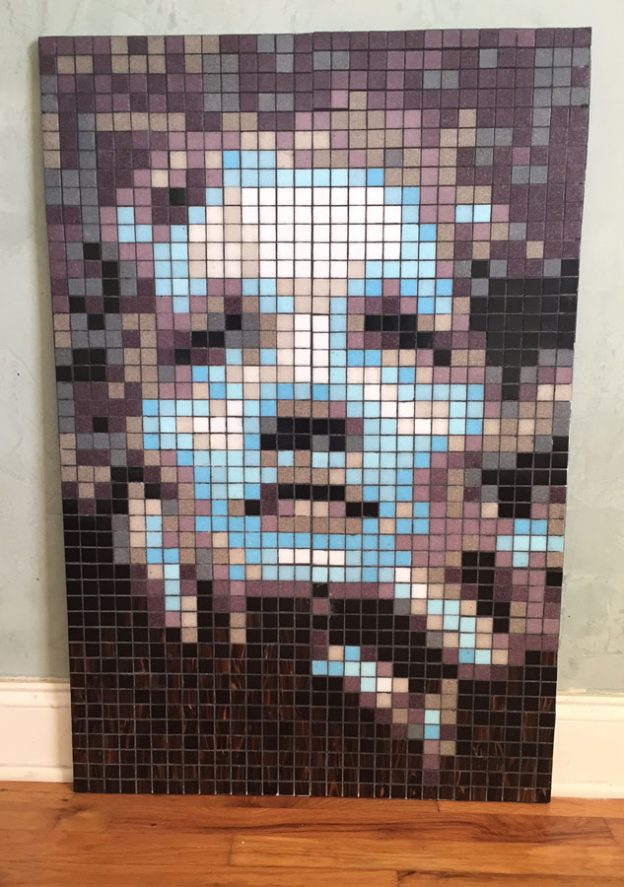Category: Improving Your Art
-
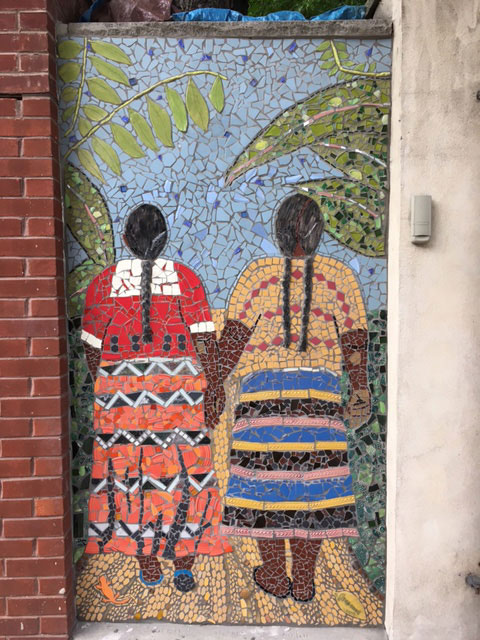
Grouting Case Study (Plus Mosaic Art Worth Seeing)
Artist Sherri Grasmuck created a mosaic facade of Guatemalan women on her house in Philadelphia that is the perfect case study for choosing a grout color.
-
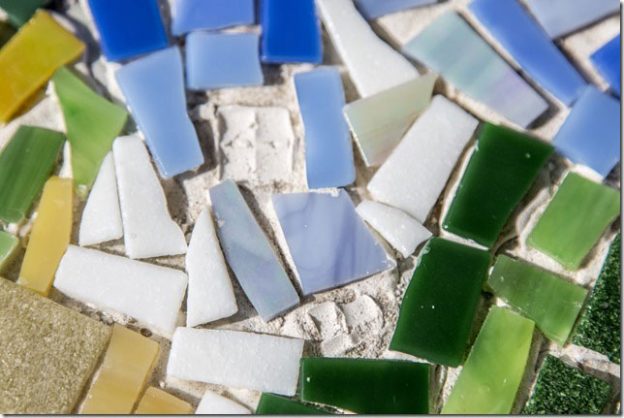
Why Did My Tiles Come Loose From Thinset?
Recently, artist Jackye Mills emailed me about a problem she was having with her first mosaic project, and it really caused me a lot of angst because the artwork was a strong design that was otherwise well executed. I hated the thought that a first-time mosaicist could do such a good job on something so ambitious only to…
-
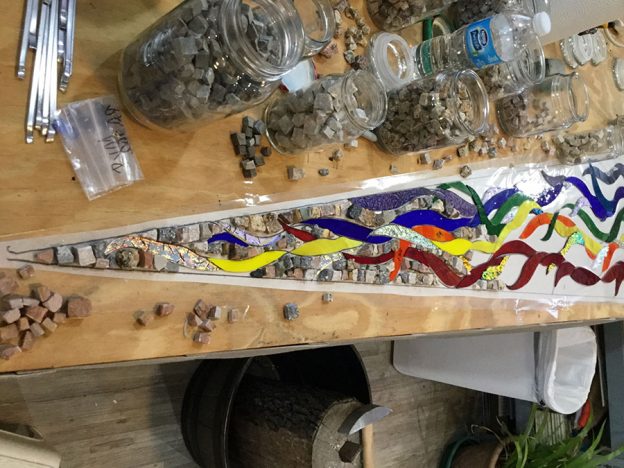
Making Mixed-Media Mosaics By A Process of Elimination
Artist Susan Watson created a stained glass and stone mosaic for her studio exterior wall and chose the background color and material using a process of trial and elimination. Mixed-media mosaic artists often choose backgrounds by laying tile on the pattern or backer after the figures have been tiled, as I explained in my recent article…
-
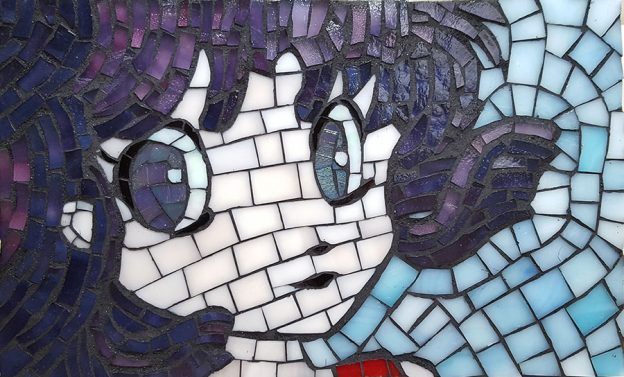
How To Choose Mosaic Background Colors and Patterns
Background colors for mosaics should be chosen based on how well they contrast with the colors used in figures. For this reason, most mosaic artists will tile their figures first and then choose their background colors by a trial-and-error process of placing tiles on the mosaic backer and just seeing how they look. The same approach…
-
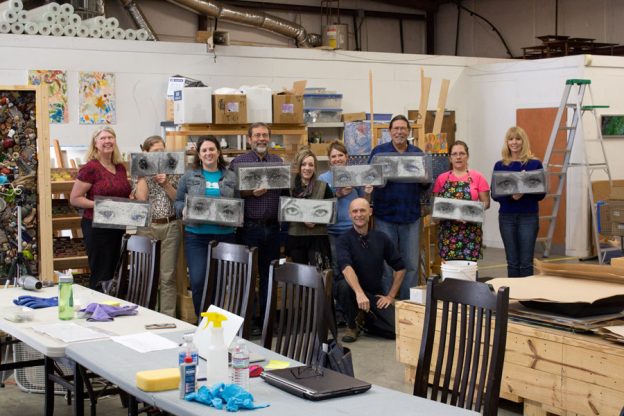
Opus Pixellatum Mosaic Class Photos and Videos
Frederic Lecut’s “Opus Pixellatum” Mosaic Class was a lot of fun, and I think the mosaics were very successful, especially with the improvised tweaking and colorization that students did in phase two of the process. In the photo above, instructor Frederic Lecut kneels in front of the class. When people are in position at the…
-
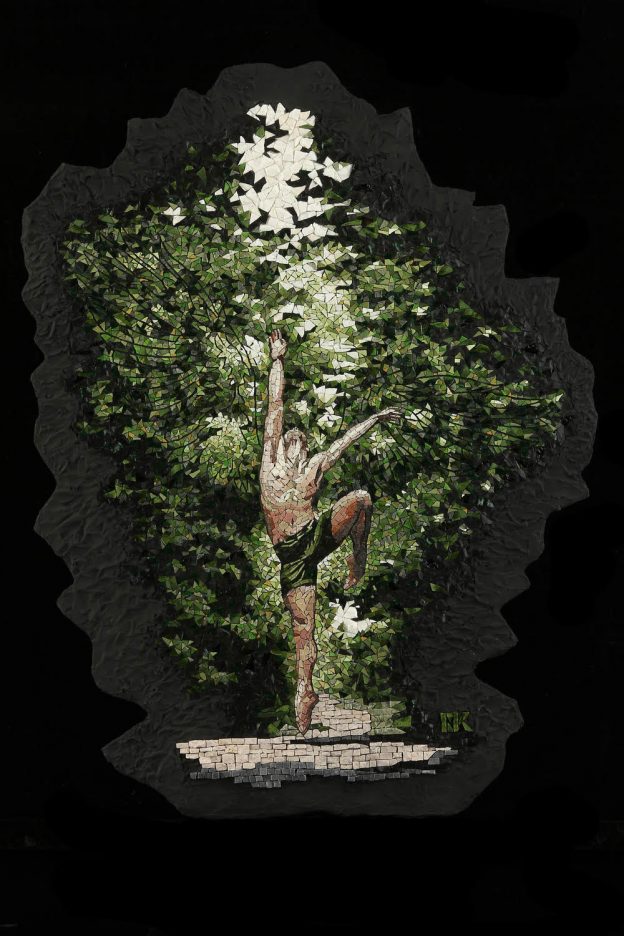
Mosaic Artist Michael Kruzich’s Must-See Work
Mosaic Artist Michael Kruzich has a body of work worth taking a look at, especially if you have any doubts about how well dramatic lighting can be rendered in mosaic portraiture and other figurative mosaic artwork. But that’s not all that you need to see of his work. Michael has also made some mosaic-clad figurative sculpture that is as…
-

Class with Mosaic Master Frederic Lecut
Artist Frederic Lecut has agreed to teach a class in which student will create a naturalistic mosaic portrait of their own eyes using Frederic’s Opus Pixellatum technique. We are very excited! Take a look at Frederic’s mosaic eye portraits to get an idea what you will make in this course, and we think you will be…
-
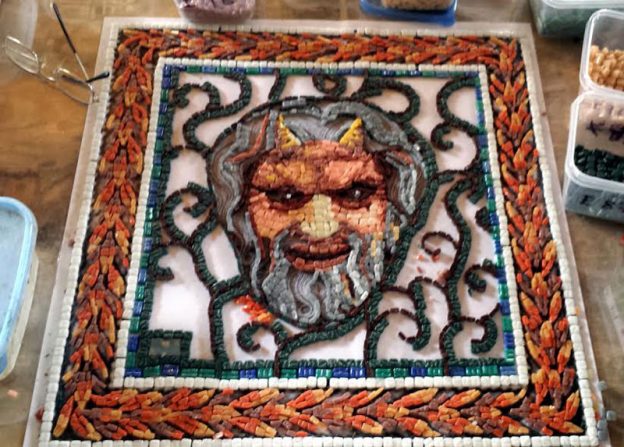
Pan’s Head Mosaic: A Classical Interpretation
Artist Frederic Lecut’s “Pan’s Head” mosaic has a style that matches its theme, and it is a great example of using classical elements in a contemporary mosaic. The face of the “goat-footed god of Attica” or Pan is the subject of Lecut’s mosaic, and consequently the artist incorporates several aspects of ancient Greek mosaic in his…
-
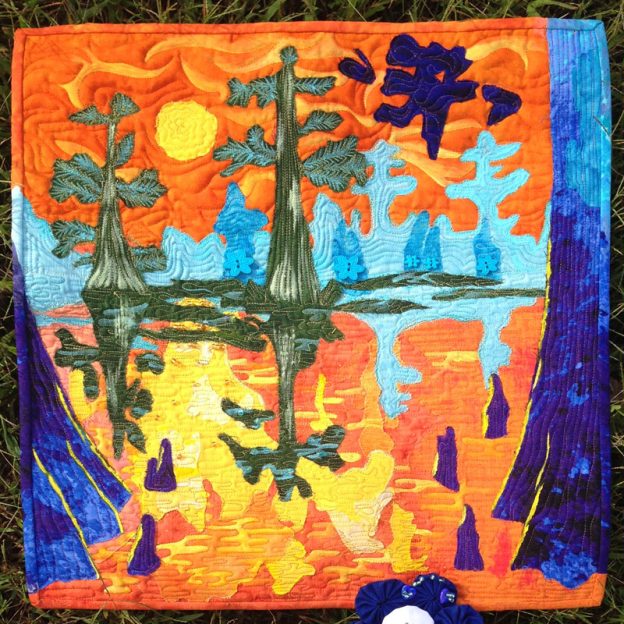
Interpreting Artwork In A Different Medium
Interpreting a work of art in a different medium is a matter of capturing the essence of the original without being an exact copy, although most people would prefer to see a copy that had no departures than something that was unrecognizable. With that in mind, the first step in creating an interpretation of an existing work…
-
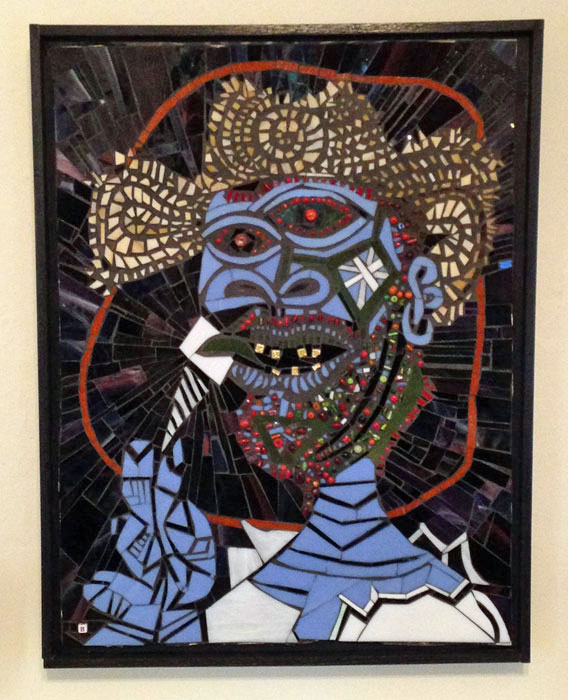
Mosaic Interpretation of Picasso Painting
Brian Kyle’s mosaic interpretation of Picasso’s painting “Man With Ice Cream Cone” is a refreshing departure from the cute themes that seem to dominate contemporary mosaic artwork. Brian calls his mosaic “The Lecher” and says that some people are creeped out by it. I say that makes it real Art (with a capital A) in the sense of…
-
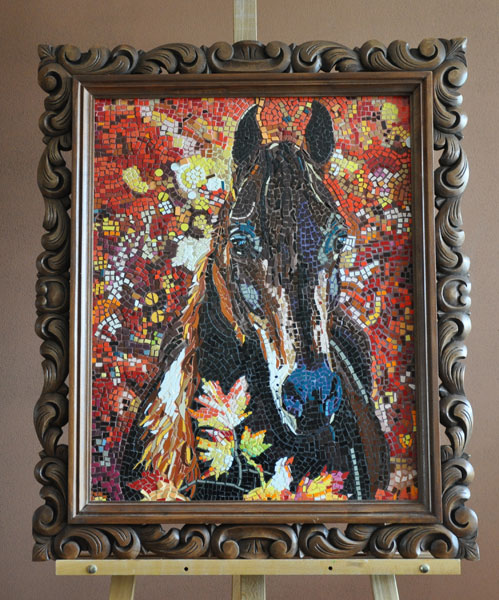
Creating Visual Interest In Mosaics
Contrast is a good way to create visual interest in your mosaic, and when contrast comes in the form of highlights and shadows, it also creates verisimilitude (the appearance of being real). Highlights and shadows can be as simple as shading the edges of a figure and leaving the center lighter so that the figure…

